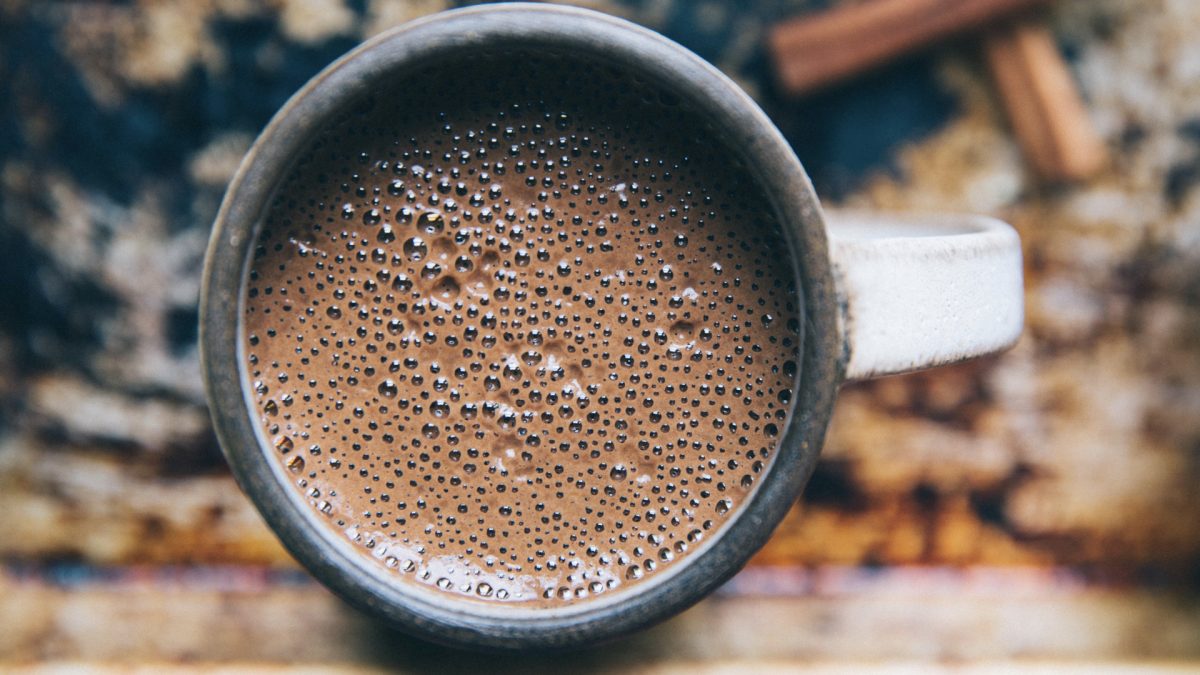Botanically speaking, seeds are small embryonic plants—the whole plant stuffed into a tiny seed and surrounded by an outer layer packed with vitamins, minerals, and phytochemicals to protect the seedling plant’s DNA from free radicals. No wonder they’re so healthy. By seeds, using the formal definition, we’re talking all whole grains; grains are seeds—you plant them and they grow. Nuts are just dry fruits with one or two seeds. Legumes (beans, peas, and lentils) are seeds, too, as are cocoa and coffee beans. So, finding health-promoting effects in something like cocoa or coffee should not be all that surprising. There is substantial evidence that increased consumption of all these little plants is associated with lower risk of cardiovascular disease.
Of course, much of chocolate research is just on how to get consumers to eat more. While it didn’t seem to matter what kind of music people were listening to when it came to the flavor intensity, pleasantness, or texture of a bell pepper, people liked chocolate more when listening to jazz than classical, rock, or hip hop. Why is this important? So food industries can “integrate specific musical stimuli” in order to maximize their profits. For example, purveyors may play jazz in the background to increase consumers’ acceptance of their chocolates. Along these lines, another study demonstrated that people rated the oyster eaten “more pleasant in the presence of the ‘sound of the sea’ than in the presence of ‘farmyard noises.’”
You’d think chocolate would just sell itself, given that it’s considered the most commonly craved food in the world. The same degree of interest doesn’t seem to exist as to whether or not Brussels sprouts might provide similar cardiovascular protection. So, it’s understandable to hope chocolate provides health benefits. Meanwhile, despite their known benefits, Brussels sprouts don’t get the love they deserve.
One of the potential downsides of chocolate is weight gain, which is the subject of my Does Chocolate Cause Weight Gain? video. Though cocoa hardly has any calories, chocolate is one of the most calorie-dense foods. For example: A hundred calories of chocolate is less than a quarter of a bar, compared to a hundred calories of strawberries, which is more than two cups..
A few years ago, a study funded by the National Confectioners Association—an organization that, among other things, runs the website voteforcandy.com—reported that Americans who eat chocolate weigh, on average, four pounds less than those who don’t. But maybe chocolate-eaters exercise more or eat more fruits and vegetables. The researchers didn’t control for any of that.
The findings of a more recent study published in the Archives of Internal Medicine were less easy to dismiss and there were no apparent ties to Big Chocolate. The researchers reported that out of a thousand men and women they studied in San Diego, those who frequently consumed chocolate had a lower BMI—actually weighed less—than those who ate chocolate less often. And, this was even after adjusting for physical activity and diet quality. But, it was a cross-sectional study, meaning a snapshot in time; so, you can’t prove cause and effect. Maybe not eating chocolate leads to being fatter, or maybe being fatter leads to not eating chocolate. Maybe people who are overweight are trying to cut down on sweets. What we need is a study in which people are followed over time.
There was no such prospective study, until now. More than 10,000 people were followed for six years, and a chocolate habit was associated with long-term weight gain in a dose-response manner. This means the greatest weight gain over time was seen in those with the highest frequency of chocolate intake. It appears the reason the cross-sectional studies found the opposite is that subjects diagnosed with obesity-related illnesses tended to reduce their intake of things like chocolate in an attempt to improve their prognosis. This explains why heavier people may, on average, eat less chocolate.
To bolster this finding came the strongest type of evidence—an interventional trial—in which you split people up into two groups and change half their diets. Indeed, adding four squares of chocolate to peoples’ daily diets does appear to add a few pounds.
So, what do we tell our patients? In 2013, researchers wrote in the American Family Physician journal that “because many cocoa products are high in sugar and saturated fat, family physicians should refrain from recommending cocoa….” That’s a little patronizing, though. You can get the benefits of chocolate without any sugar or fat by adding cocoa powder to a smoothie, for example. Too often, doctors think patients can’t handle the truth. Case in point: If your patients inquire, one medical journal editorial suggests, ask them what type of chocolate they prefer. If they respond with milk chocolate, then it is best to answer that it is not good for them. If the answer is dark chocolate, then you can lay out the evidence.
Even better than dark chocolate would be cocoa powder, which contains the phytonutrients without the saturated fat. I’ve happily (and deliciously) created other videos on cocoa and chocolate; so, check out A Treatment for Chronic Fatigue Syndrome, and Dark Chocolate and Artery Function.
Whether with Big Candy, Big Chocolate, or some other player, you always have to be careful about conflict of interest. For more information, watch my Food Industry Funded Research Bias video.
In health,
Michael Greger, M.D.
PS: If you haven’t yet, you can subscribe to my free videos here and watch my live, year-in-review presentations:
- 2012: Uprooting the Leading Causes of Death
- 2013: More Than an Apple a Day
- 2014: From Table to Able: Combating Disabling Diseases with Food
- 2015: Food as Medicine: Preventing and Treating the Most Dreaded Diseases with Diet
- 2016: How Not To Die: The Role of Diet in Preventing, Arresting, and Reversing Our Top 15 Killers
